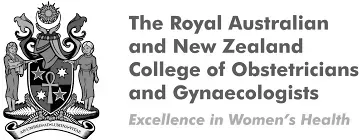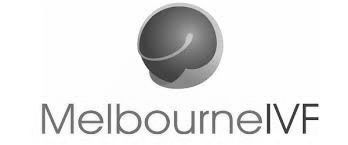Novasure
What is NovaSure?
NovaSure is a medical procedure designed to treat heavy menstrual bleeding, also known as menorrhagia. It is a form of endometrial ablation, which involves removing or destroying the lining of the uterus (the endometrium) to reduce or stop menstrual bleeding. NovaSure uses radiofrequency energy to achieve this goal.
Who is Suitable for NovaSure?
NovaSure is suitable for women who:
- Experience heavy menstrual bleeding that affects their daily activities.
- Have completed childbearing, as pregnancy after the procedure can be dangerous.
- Are looking for a less invasive alternative to hysterectomy.
- Do not have an active pelvic infection, cancer, or certain uterine conditions such as fibroids that distort the uterine cavity.
Benefits of NovaSure
NovaSure is a procedure that can offer several benefits for women with heavy menstrual bleeding caused by menorrhagia. Some of the potential benefits of NovaSure include the following:
- Reduced heavy menstrual bleeding: The procedure destroys the lining of the uterus (the endometrium), reducing heavy menstrual bleeding and improving the quality of life for women with menorrhagia.
- Minimally invasive: NovaSure is a minimally invasive procedure that does not require a surgical incision. This can reduce the risk of complications and recovery time compared to more invasive procedures such as hysterectomy.
- No hormone therapy: Unlike other treatments that rely on hormone therapy, NovaSure does not require long-term hormone therapy.
- High success rate: NovaSure has a high success rate in reducing heavy menstrual bleeding and improving the quality of life for women with menorrhagia.
- Quick procedure: The procedure takes about 30 minutes, and patients can return to normal activities within a day or two.
- Cost-effective: NovaSure is a cost-effective treatment option for heavy menstrual bleeding as it often eliminates the need for repeat procedures or long-term hormone therapy.
Alternative Options to NovaSure
There are other available alternative options to Novasure, which include:
- Hormonal therapy: Hormonal therapy, such as birth control pills, injections, or intrauterine devices (IUDs) that release hormones, can help to regulate menstrual cycles and reduce heavy bleeding.
- Medications: Nonsteroidal anti-inflammatory drugs (NSAIDs) can help to reduce heavy bleeding during menstrual periods.
- Surgical such as:
- Hysterectomy: This is a surgical procedure that removes the uterus. It is a standard treatment option for heavy menstrual bleeding, but it is considered a more invasive option and unsuitable for women who want to have children in the future.
What to Do Before a NovaSure Procedure?
Before undergoing NovaSure, a few preparatory steps are necessary:
- A thorough medical evaluation and discussion with a doctor to ensure suitability.
- An ultrasound or other imaging tests to examine the uterus.
- Possibly taking medication to thin the endometrial lining or dilate the cervix before the procedure.
NovaSure Procedure
The NovaSure procedure involves several key steps:
- Insertion: During the procedure, the patient lies on an exam table similar to the position for a pelvic exam. A speculum is used to hold the vagina open, and the NovaSure device is inserted through the cervix into the uterus.
- Deployment: Once the device is in place, it expands to fit the shape and size of the uterine cavity. The device's mesh array is designed to contact the endometrial lining evenly.
- Ablation: Radiofrequency energy is delivered through the mesh, which heats the endometrial tissue and causes it to be destroyed. This process typically takes less than five minutes.
- Removal: After the ablation is complete, the device is carefully removed from the uterus. The patient can usually go home shortly after the procedure.
What to Expect After the NovaSure Procedure?
Post-procedure expectations include:
- Some cramping, similar to menstrual cramps, which can be managed with over-the-counter pain relief.
- A watery, pinkish discharge for a few weeks as the body expels the ablated tissue.
- Most women can resume normal activities within a day or two.
Recovery Plan after NovaSure
A typical recovery plan includes:
- Resting for the remainder of the day after the procedure.
- Avoiding strenuous activities and sexual intercourse for a few days.
- Following up with the doctor to monitor recovery and address any concerns.
NovaSure Prognosis
The prognosis for NovaSure is generally considered favourable for women with heavy menstrual bleeding. The procedure can help to reduce or stop heavy menstrual bleeding and improve the quality of life for women with heavy menstrual bleeding.
According to studies, up to 90% of women who undergo the NovaSure procedure experience a significant reduction in menstrual bleeding, and up to 70% of women may stop having menstrual periods altogether. This successful outcome allows women to return to their daily activities without interruption and improve their quality of life.
The NovaSure procedure is only suitable for some women. Dr Alyousif will consider your specific circumstances and preferences before determining whether NovaSure is the best option.
NovaSure Risks
While NovaSure is generally safe, there are some potential risks and considerations to keep in mind:
- Infection: As with any medical procedure, there is a risk of infection.
- Perforation: There is a small risk of perforating the uterine wall or damaging surrounding organs.
- Pain and Cramping: Some women may experience pain or cramping during and after the procedure.
- Changes in Menstrual Cycle: Some women may experience changes in their menstrual cycle or hormonal symptoms after the procedure.
- Pregnancy Risks: Pregnancy after NovaSure can be dangerous due to the reduced uterine lining, so effective contraception is recommended for women who have not completed childbearing.
Cost of NovaSure
The cost might be minimal or fully covered in a public hospital with Medicare coverage, especially if the procedure is deemed medically necessary.
The cost of NovaSure in a private hospital or clinic can range from approximately AUD 2,000 to AUD 4,000+. This estimate includes the procedure, hospital fees, anaesthesia, and additional charges.
Patients should consult their doctor and insurance company for the most accurate and personalised cost estimate. This will ensure they clearly understand the financial commitment involved and can make an informed decision about undergoing the NovaSure procedure.



